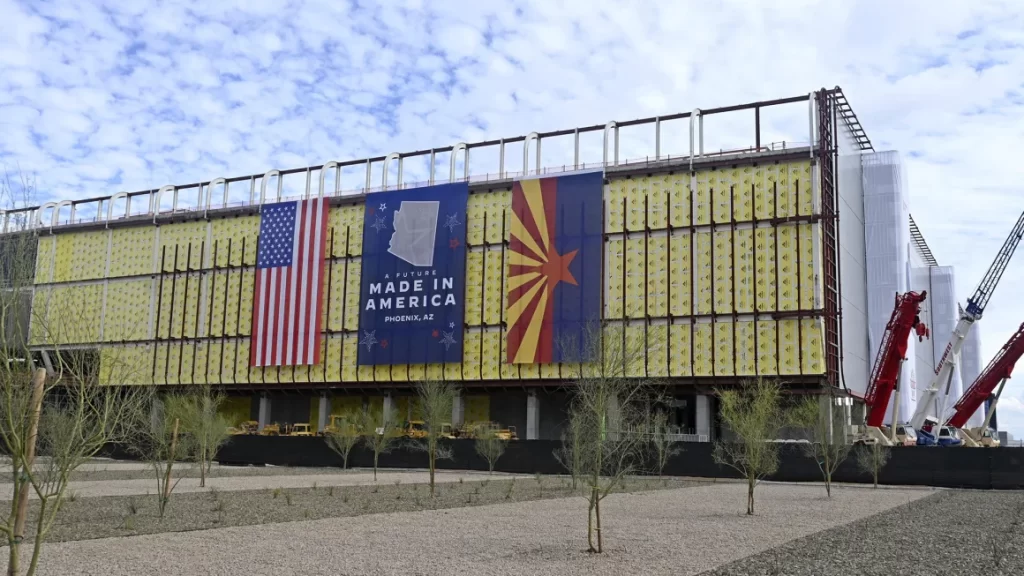
The US government plans to give $6.6 billion to the world’s biggest manufacturer of semiconductor chips to help it build three factories in Arizona as part of President Joe Biden’s efforts to secure the supply of advanced chips.
The White House announced Monday that it had signed a non-binding agreement with Taiwan Semiconductor Manufacturing Company (TSMC) to provide it with the funds for the Phoenix-based fabrication plants, or “fabs,” in addition to roughly $5 billion in government loans.
“America invented these chips, but over time, we went from producing nearly 40% of the world’s capacity to close to 10%, and none of the most advanced chips,” Biden said in a statement. “(That exposes) us to significant economic and national security vulnerabilities.”
In addition to two previously announced US plants, the Taiwanese chip-maker, which manufactures an estimated 90% of the world’s most advanced chip, said Monday that it would build a third, bringing its total investment in Arizona to more than $65 billion.
TSMC (TSM) Chairman Mark Liu called the investment “unprecedented” in a statement, noting that its US customers include several of the world’s leading technology companies. The three fabs — the first of which is due to start production in the first half of 2025 — will give these customers access to a domestic supply of chips that power scores of products, from smartphones to satellites, as well as artificial intelligence systems.
The company’s total $65 billion investment represents the largest foreign direct investment in Arizona’s history, the White House said. The three fabs are expected to create around 6,000 high-wage tech jobs, and more than 20,000 indirect jobs — for instance, in construction, it added.
Securing supply chains
The US government has emphasized the need to bring more chip production onshore to limit potential supply disruptions. In a vivid demonstration of that risk, the coronavirus pandemic caused huge bottlenecks in chip deliveries around the world, and contributed to higher consumer goods prices.
Taiwan is also in a vulnerable position: Supply chain experts and US officials worry that US-China trade tensions and potential military aggression against the island by Beijing could disrupt its vital chip-making industry. A powerful earthquake in Taiwan last week also highlighted the industry’s exposure to such natural disasters.
In a call with reporters ahead of Monday’s announcement, US Commerce Secretary Gina Raimondo said President Biden was “tired of being at the end of the supply chain” and that the new government funds went “a long way to further strengthening our domestic supply chain resilience.”
“For the first time ever, we will be making, at scale, the most advanced semiconductor chips on the planet here in the United States of America,” she added.